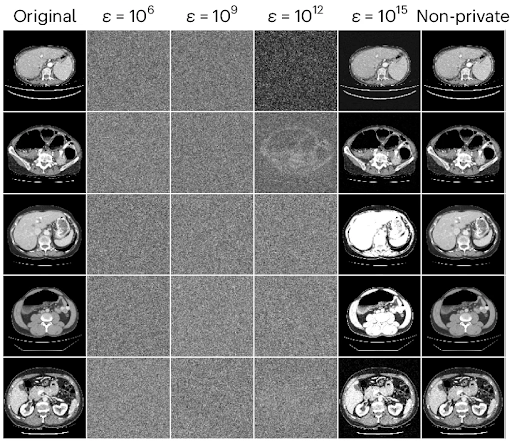Tax, immigration and diversity, equity and inclusion policies are some of the top-of-mind regulatory concerns for home health agencies in 2025.
The first 60 days of the Trump Administration and their impact on the home health care industry were highlighted during a webinar hosted by the Polsinelli Law Firm on Thursday.
National Alliance for Care at Home CEO Steve Landers and Home Care Association of America (HCAOA) CEO Jason Lee joined representatives from Polsinelli to discuss potential Medicaid cuts, the importance of extending telehealth services, and the need for workforce expansion. The webinar also explored how executive orders and administrative actions are affecting home care and hospice services.
Lee opened the discussion by highlighting several issues currently concerning the HCAOA, including tax policy. He emphasized the need to examine tax policies to determine how relief can be provided to those receiving home health care services.
He expressed support for the recently introduced Credit for Caring Act, which would offer eligible caregivers a tax credit of up to $5,000 for 30% of long-term care expenses exceeding $2,000 within a taxable year.
Another policy under consideration is the Lowering Cost for Caregivers Act, for which HCAOA has drafted a letter of support. This act would allow tax-free health savings accounts (HSAs) and flexible spending accounts (FSAs) to be used for medical expenses related to parents and loved ones. This represents a shift from current regulations, which prevent caregivers from utilizing these tax-free accounts unless their parents are classified as dependents.
Additionally, the Home Care for Seniors Act would permit tax-exempt distributions from HSAs for qualified home care expenses, specifically those related to assistance with activities of daily living.
“In our conversations during the House Ways & Means Committee meeting, key staff did not dismiss any ideas,” Lee noted. “However, as you can imagine, the tax credit aspect faces more challenges due to its costs. From that perspective, I believe the HSA and FSA acts may be more appealing. For now, everything is still very much up for discussion.”
Landers applauded the continuing resolution allowing the availability of telehealth for Medicare home health services and face-to-face certification for hospice.
“Those aspects are critically important in an era where we have a low workforce in primary care and geriatric medicine,” he said. “We need technology to provide the level of access that is required.”
He added that The Alliance is focused on three main areas: access to care at home, the quality of care at home, and ending fraud and abuse in both the care-at-home sector and the workforce.
“The topic of reconciliation and the need to pass tax legislation to extend tax cuts is a political imperative for the Republican majority,” Landers stated. “The question is, what’s on the table to pay for that? Obviously, Medicaid is one of those topics. The Alliance does not want anything to hinder the growth of Medicaid home- and community-based services, which support vulnerable elders in cost-effective ways.”
The budget resolution approved by the House of Representatives on Feb. 28 was a significant topic of discussion. It proposes $880 billion in cuts from programs overseen by the House Energy and Commerce Committee over the next ten years, including Medicaid.
“One important thing to understand is that the Senate does not include the same types of cuts in their proposal,” Angelo Spinola, chair of home health, home care, and hospice at Polsinelli said during the webinar. “We have a long way to go to determine where we will end up. When you talk to experts, you find that reaching $880 billion solely by addressing fraud, waste, and abuse is unlikely. There will need to be changes to Medicaid that have raised significant concerns. There is a lot of activity on Capitol Hill and among local representatives addressing these issues.”
Immigration concerns
Immigration is an area where the Trump Administration has been particularly proactive. Jeffrey Bell, the chair of Polsinelli’s immigration and global mobility practice, noted that the administration is likely to focus on workers who are either undocumented or have overstayed their visas. He said he anticipates an increased emphasis on employers who hire these individuals, along with a rise in government inspections of their workplaces.
“Government interviews can be coercive or unsettling, especially when employees do not fully understand the scope of the investigation,” Bell stated. “These situations often attract unwanted media attention and can harm a company’s reputation.”
To mitigate these risks, Bell recommended that organizations educate both management and employees who may interact with government officials. He also suggested designating a contact person within the organization who understands how to communicate effectively with these officials.
In light of new guidelines and regulations, Bell advised reviewing the agency’s documentation to ensure everything is in order. This includes a thorough examination of the I-9 forms on file. I-9 forms verify the identity and employment authorization of individuals hired in the U.S. In some cases, these forms may need to be re-verified to confirm that the employee is still authorized to work.
“The I-9 form is the company’s best defense,” Bell emphasized. “Well-completed I-9 forms can protect the organization and help mitigate financial penalties. Employers must have a form for every employee hired and should regularly check these documents to ensure they are up-to-date.”
DEI Initiatives
Diversity, equity, and inclusion (DEI) have become significant concerns for organizations during the Trump Administration.
In the first 60 days, the administration repealed Executive Order 11246, which was enacted in 1964. This order required federal government contractors and subcontractors to implement affirmative action plans based on race and gender. As a result, the Office of Federal Contract Compliance Programs has largely ceased any enforcement activity related to affirmative action. However, the requirement for employers with more than 100 employees to submit the Equal Employment Opportunity Report (EEO-1) remains in place.
“I would expect the EEOC to investigate national origin discrimination against Americans in favor of foreign labor,” stated Jack Blum, a shareholder at Polsinelli specializing in employment litigation, arbitration, and dispute resolution.
Additionally, Blum noted that the current administration is “cracking down” on “illegal” DEI programs. He emphasized that there is currently little clarity on what constitutes “illegal” in this context. He suggested that organizations review their policies for any language that indicates a preference for certain groups or references to hiring targets or quotas. Furthermore, he advised caution regarding programs that provide benefits and have criteria excluding employees based on protected characteristics.
Blum clarified that general DEI commitments and efforts to create an inclusive work environment are not prohibited. He also suggested that organizations should continue training employees on anti-discrimination laws but ensure this training avoids aggressive DEI-type statements that stereotype or portray certain groups negatively. Additionally, he warned employers to be mindful of state and local laws in specific jurisdictions that may not align with the Equal Employment Opportunity Commission and its future guidance.
The post Trump’s First 60 Days: The Impact On The Home Health Industry appeared first on Home Health Care News.











